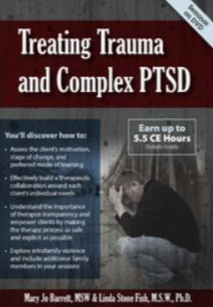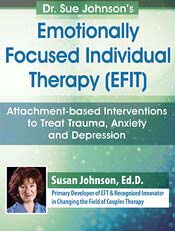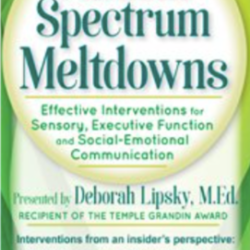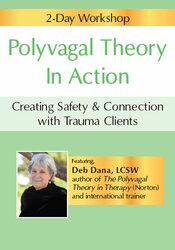🎁 Exclusive Discount Just for You!
Today only: Get 30% OFF this course. Use code MYDEAL30 at checkout. Don’t miss out!
Understand the importance of therapist transparency and empower clients by making the therapy process as safe and explicit as possible
Explore intrafamily violence and include additional family members in your sessions
File Size: 2.53 GB.
Mary Jo Barrett & Linda Stone Fish – PESI – Treating Trauma and Complex PTSD

When working with trauma cases do you see clients go into flight, fight, and/or freeze? Do they yell at you, insult you, or leave the session? Are there times you find yourself getting angry at your clients? Do you recognize your own flight, fight, and/or freeze response? Welcome to the messy, often confusing world of trauma treatment. In this workshop, you’ll explore practical in-session techniques as well as a framework to help you recognize what’s happening when things heat up and get intense. You’ll discover how to:
- Assess the client’s motivation, stage of change, and preferred mode of learning
- Effectively build a therapeutic collaboration around each client’s individual needs
- Understand the importance of therapist transparency and empower clients by making the therapy process as safe and explicit as possible
- Explore intrafamily violence and include additional family members in your sessions
Outline
- What Does “Getting Messy” Mean?
- Four Levels of Stress Reactivity
- Unmanageable Stress & Self-Protection
- Relational Perspectives of Trauma
- What Does Messy Mean to You?
- Avoidance of Discomfort
- Difficulty Controlling Emotional Thoughts, Behaviors, and Relationships
- Survival Mindstate
- Engaged Mindstate
- Regulating the Nervous System
- Mirror Neuron Helpers’ Journey
- Ethical Attunement
- Therapist Awareness & Attunement
- Reactive Style of Therapist
- Consequences of Not Being Ethically Attuned
- Attachment Styles
- Defining Features of Attachment Bonds
- Neurological Regulating
- The Collaborative Change Model
- Fractal Model of Change
- Mirroring = Attunement
- Stage 1: Creating a Context for Change
- Stage 2: Challenging Patterns & Expanding Realities
- Stage 3: Consolidation
- Building a Therapeutic Collaboration
- Interventions
- Understanding the Victim/Survival Cycle
- Noticing
- Role-Plays
- Family Messiness
- Skills for Working with Family Messiness
- Video, Role-Play, Case Studies
- Skills for Working with Family Messiness
Objectives
- Assess for stress reactivity and trauma
- Establish criteria for understanding the importance of therapist transparence and empower clients by creating a safe therapeutic space
- Instruct on how to utilize the Collaborative Change Model
- Develop tools to effectively build a therapist collaboration around each client’s individual needs
- Evaluate interfamily violence and support the inclusion of additional family members in sessions
- Develop skills for working with family messiness
Course Features
- Lectures 0
- Quizzes 0
- Duration 10 weeks
- Skill level All levels
- Language English
- Students 163
- Assessments Yes





